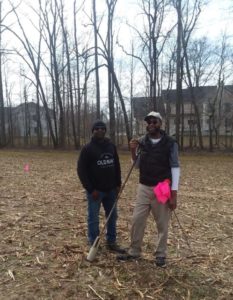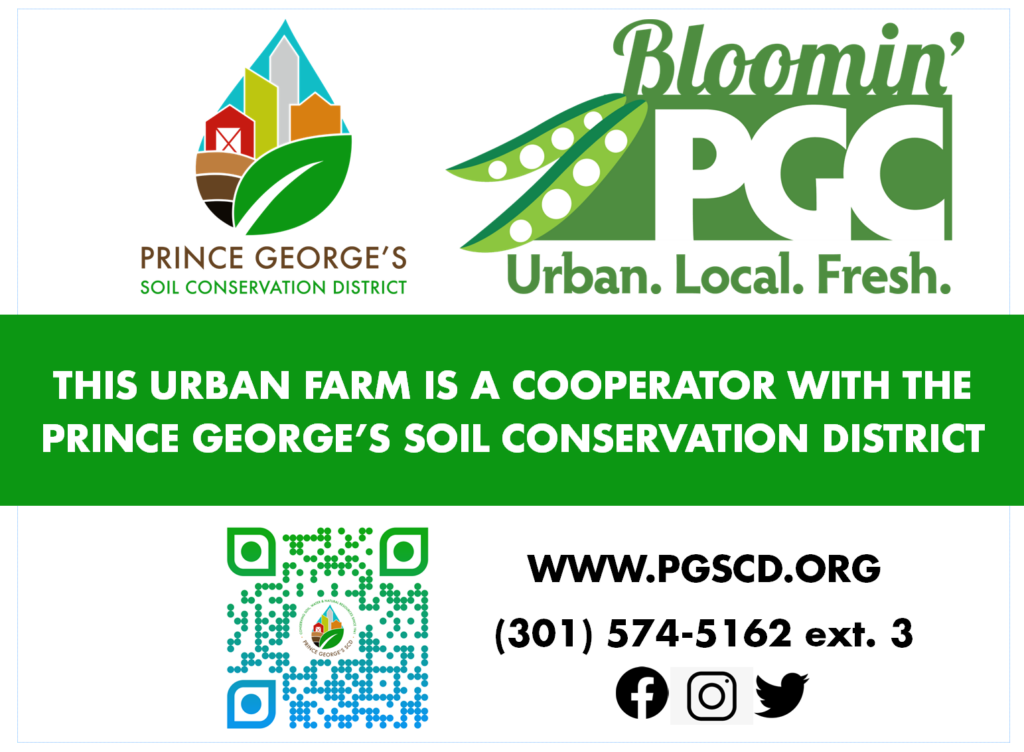 Do you have erosion or stormwater management issues on your urban farm? Do you want to improve the health of your soil and attract beneficial pollinators? We can help!
Do you have erosion or stormwater management issues on your urban farm? Do you want to improve the health of your soil and attract beneficial pollinators? We can help!
A Soil Conservation & Water Quality Plan (also known as a conservation plan) is a tool designed to help you better manage the natural resources on your urban farm. Our Urban Agricultural Conservation (UAC) staff will meet with you to evaluate the soil, water, air, plant and animal resources on your property and offer several alternatives to address these resource conditions. Once you sign a District Cooperative Agreement, you and a UAC Planner will work together collaboratively to select and implement the conservation practices that will work best for your unique farm enterprise. Implementing the conservation plan will help you not only protect your urban farm’s natural resources but contribute to the overall health of the Chesapeake Bay Watershed. In addition, many soil and water conservation practices positively affect farmers’ bottom lines by increasing productivity and biodiversity while decreasing costly inputs. Check out this 2019 article on the economics of soil health practices, The math is in: Soil health practices produce real return on investment.
There is no associated cost for any technical services provided by the District or our state partner, the Maryland Department of Agriculture (MDA), and federal partner, the National Resource Conservation Service (NRCS). The costs of implementing conservation practices are absorbed by the cooperator and/or landowner, however. There are some practices that are eligible for Federal or State cost-sharing programs that can reduce the out-of-pocket costs. Your UAC Planner and our State and Federal partners will help you navigate this process. Some of the more popular financial incentive programs are:
- Maryland Agricultural Water Quality Cost-Share Program
- NRCS Financial Assistance Programs
- MDA’s Small Farm & Urban Agriculture Program – NEW!

A High Tunnel System, commonly called a “hoop house,” is an increasingly popular conservation practice for urban farmers, and is available with financial assistance through NRCS’ Environmental Quality Incentives Program (EQIP). High tunnels protect plants from
severe weather and allow farmers to extend their growing seasons – growing earlier into the spring, later into the fall, and sometimes, year-round. In addition, there are soil health practices and pollinator plantings for small acreage farms that are available to urban farmers in Prince George’s County. We will discuss these options with you when we conduct our site visit with you and our District Conservationist. Please note that the NRCS financial assistance programs are reimbursable and that you will have to purchase the materials and contracting labor up front. In certain circumstances there there are options to secure some of the funding up front. You can discuss this with our District Conservationist.
For more information about the benefits and requirements of conservation plans in Maryland, please refer to MDA’s brochure on Soil Conservation & Water Quality Plans. Here is an example conservation plan for you to check out!
Ready to start a conservation plan on your farm? Contact our Urban Agricultural Conservation Planner & Program Manager, Kim Rush Lynch.
